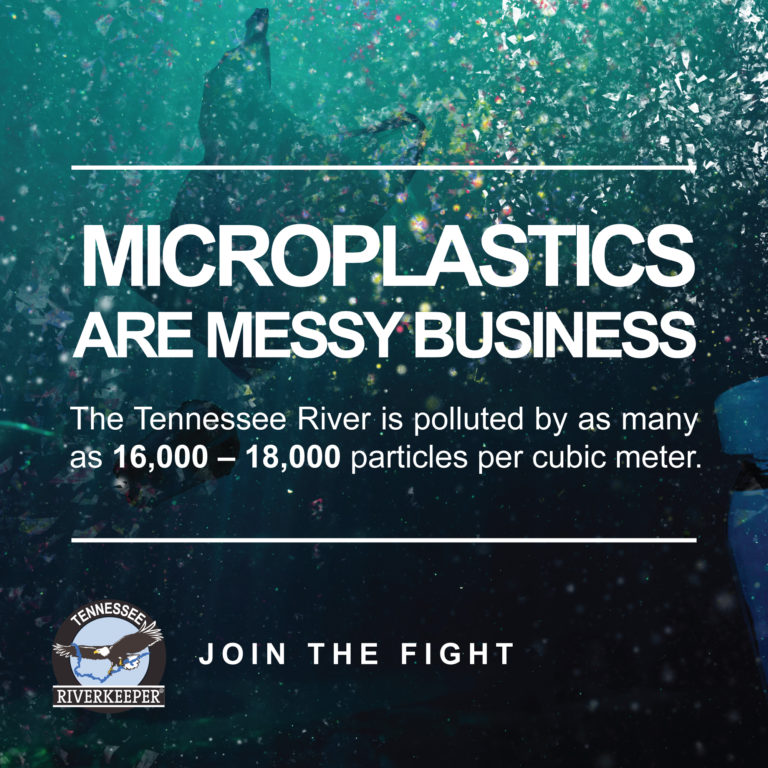
National Geographic recently ran a piece titled “Alarming’ level of microplastics found in a major U.S. river.” The Tennessee River got a lot of publicity from that piece. According to the research, the Tennessee River has 80 percent more microplastic than China’s Yangtze River. “The Tennessee River is already one of the South’s most polluted rivers, threatened by PFCs, sewage, coal pollution, industrial chemicals, pesticides, and a grim litany of other toxins,” said Tennessee Riverkeeper David Whiteside. “Now a busy Tennessee Riverkeeper must take on a new pollution fight in microplastics.”
Microplastics are tiny pieces of plastic that are produced purposefully in various products or are the result of the breakdown of larger plastic products over time. These pollutants are hard to see and hard to remove from water. They “biomagnify” in organisms, which means they build up during the food chain process after larger animals consume smaller prey. Experts believe microplastics can last for hundreds of years.
Tennessee Riverkeeper David Whiteside attribute’s his river’s pollution to the South’s habit of littering, citizens’ lack of involvement in recycling, and the amount of plastic packaging in the U.S.—most of the microplastic pollution is from polyethylene, which is used to make packaging. Research on microplastics has been limited, making this a pollution threat that we are only beginning to understand. “Microplastics and PFCs have recently emerged as two of America’s water pollution threats. These issues continue to get worse as scientists conduct more research,” said Whiteside. “Unfortunately, the Tennessee River seems like America’s toxic hotspot for these contaminants.”
In response to the problem, Tennessee Riverkeeper is developing a microplastic program to combat this plastic pollution. The campaign consists of researching and documenting the problem, as well as conducting multiple cleanups to remove and recycle litter from creeks and riverbanks. They will also work with and encourage municipalities and leaders to install trash booms, like what is happening in Decatur, Alabama. According to experts, trying to collect the plastic from deepwater is inefficient and expensive, whereas conducting cleanups on the shoreline and shallow water is more effective. “Conducting cleanups in our patrol jurisdiction is just a drop in the plastic bucket,” says Whiteside. “Every individual, municipality, and Waterkeeper must do their part.”
Learn more about Tennessee Riverkeeper and its work protecting and preserving the Tennessee and Cumberland River Basins by visiting tennesseeriverkeeper.org.